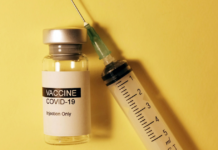Nova Scotia’s Department of Health and Wellness has confirmed to True North that there’s no minimum age for minors to consent to a COVID-19 vaccine without their parent’s approval.
“Mature minors” can consent to vaccination if a vaccine provider finds them capable of doing so. This is according to the department’s Media Relations Advisor Marla MacInnis.
“Nova Scotia does not have a minimum age for giving consent for health care decisions,” MacInnis told True North. “It is recommended that parents or guardians and their children discuss consent for COVID-19 immunization … However, parental/guardian consent is not required for mature minors and consent given by mature minors cannot be overturned by parents or guardians.”
“A mature minor is a person under the age of 19 who is able to understand the purpose of the immunization, the benefits and possible reactions of the COVID-19 vaccine and the risk of not getting immunized. Mature minors can legally book an appointment and consent to or refuse immunizations.”
MacInnis goes on to say that it’s up to those who give the injections to decide if the child is mature enough to receive them.
“In order to be considered a mature minor the immunization provider must assess the youth’s ability to consent and ability to understand the information given,” she added. “If the youth is assessed as being unable to give informed consent, a substitute decision maker must be involved, for example, a parent or guardian.”
Currently, Nova Scotia is not administering vaccines through schools, but clinics have been set up at the IWK Health Centre and Nova Scotia’s children hospital for those between the ages of five and 11.
A Nova Scotia Health Authority draft public health manual on school immunization clinics states that health officials do not need to share a child’s vaccination records with parents or guardians if the child doesn’t want them to know.
“Sharing of Personal Health Information (where consent of a minor was granted for immunization): If a student is assessed as capable of providing informed consent for immunization, the record of such immunization should be provided directly to the student. No further communication with the parent or guardian about the immunization should occur without the consent of the student.”.
Health Canada had approved COVID-19 vaccination for children between the ages of five and 11 earlier this month, and vaccines are currently being rolled out across the country.






















